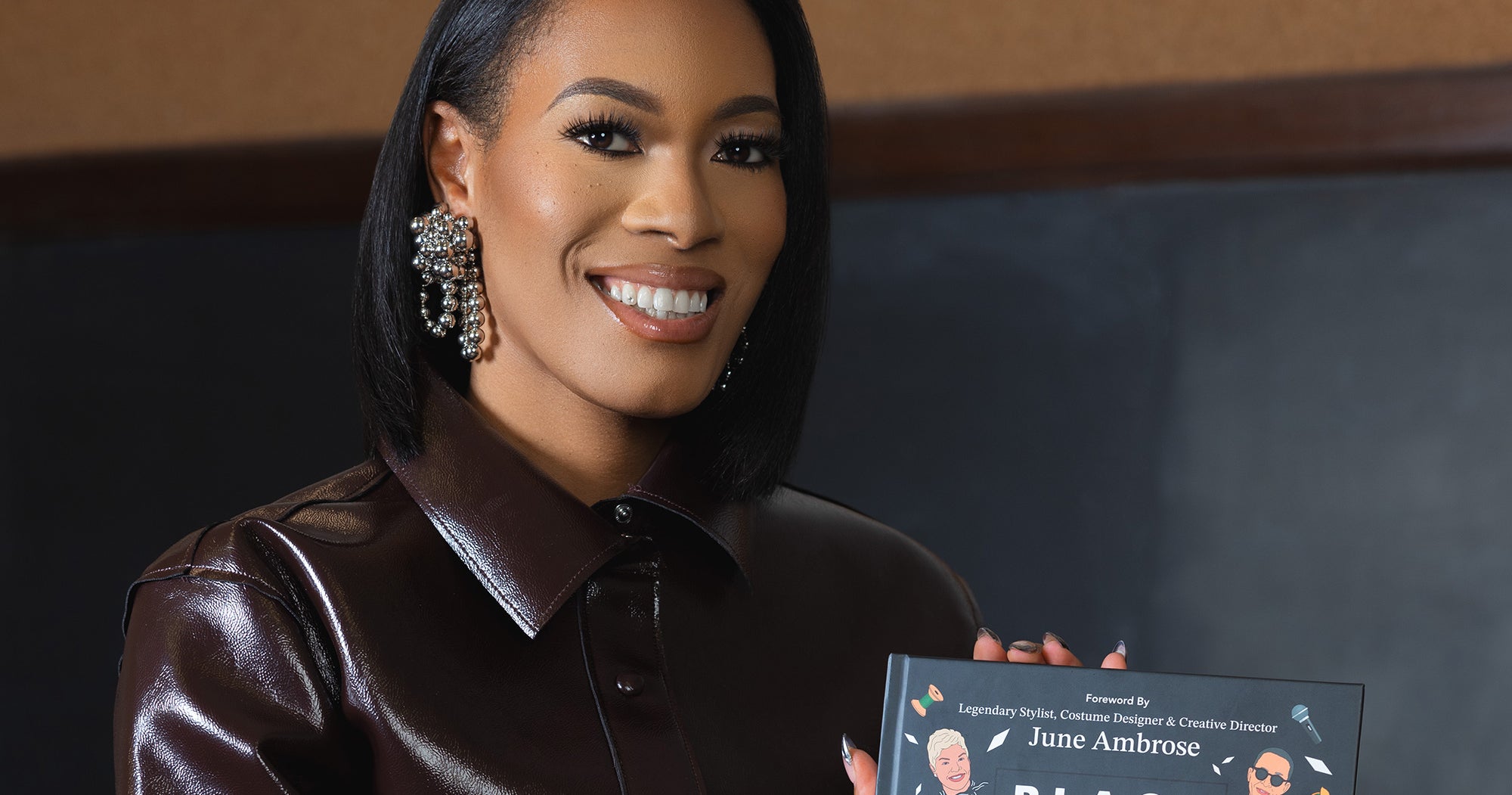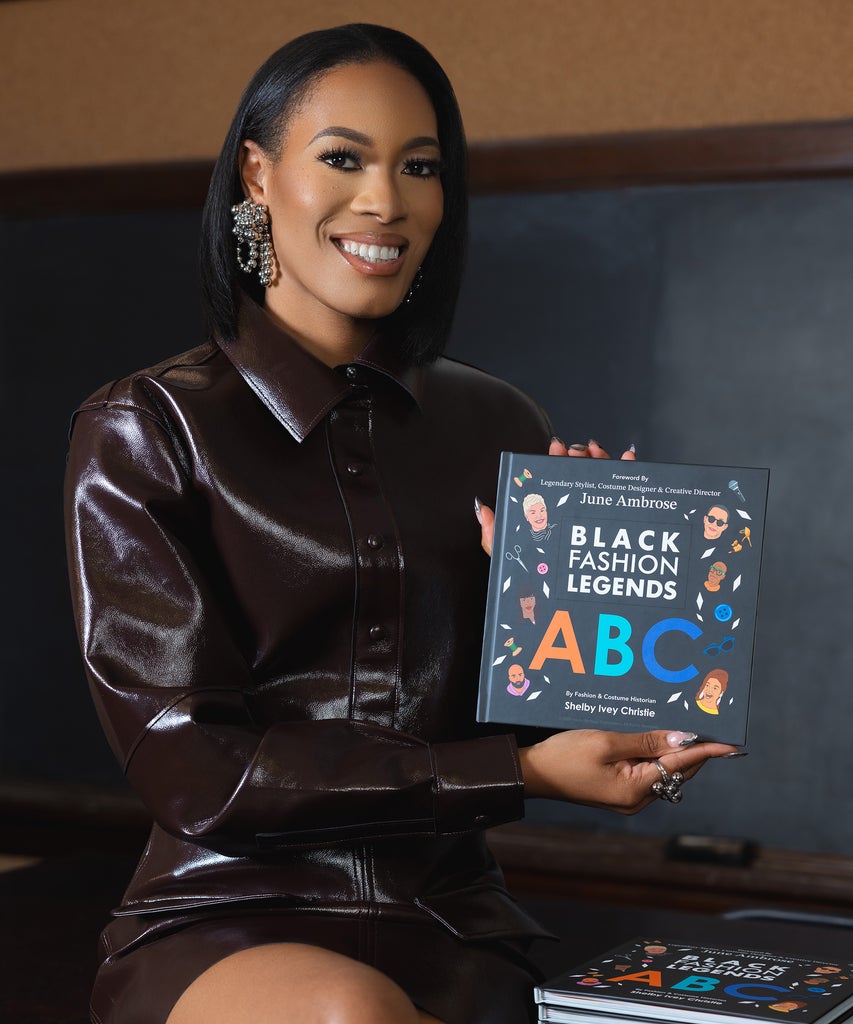Fashion History Books Often Exclude Black Designers —Shelby Ivey Christie Is Changing That
Shelby Ivey Christie knows how to tell a fashion tale like no one else. She’s one of the industry’s most beloved historians, particularly for highlighting the rich depth of lesser-known, often uncredited Black stories. On Twitter (or X, if anyone actually calls it that), she breaks down sartorial narratives related to both people and styles across time, from the prevalence of gold teeth in the South to Tracee Ellis Ross’ costumes in Girlfriends. Her next venture, though, brings her mission to a much larger scale. This week, Christie announced the launch of Haute Heritage Publishing, a new imprint aiming to shift the narrative around fashion history by focusing on its untold stories. Its debut title, Black Fashion Legends, is an ABC-style book spotlighting key industry figures like model Beverly Johnson (for “B”) and designer Ann Cole Lowe (for “L”). June Ambrose penned an encouraging foreword, which Christie describes as “a true call to action to readers, particularly young readers.” Haute Heritage was partly inspired by moments with family and friends’ kids. “I’m the fashion auntie, and I wanted to give something related to fashion, so I got them their first fashion book,” she says. “My cousins and friends loved it for their kids, but I thought this doesn’t really have anyone that resonates with me. It’s great that Coco Chanel, Karl Lagerfeld, and Grace Coddington are in there, but how are they going to learn about Dapper Dan and Misa Hylton? How are they going to learn all the things that are directly reflective of their culture and identity?” A pivot had been a long time coming for Christie. She started as a closet intern in the early 2010s at W, before going on to work as a marketer at leading luxury brands like Vogue, Amazon, and L’Oréal. She began building up her social feed and gaining recognition for her insightful commentary — halfway through 2020, though, she started thinking about the next phase for her work and, specifically, moving it offline. “I felt like I had done all the threads I could do,” she says. “The rest of my industry finally started saying, ‘Hmm, we do have a diversity problem.’ I felt like, ‘Okay, my work is done. I moved the needle. What’s next?’” By February 2023, she started ideating what became Haute Heritage. (That wasn’t her only professional shift: She’s currently pursuing an MBA at Central Saint Martins, fashion’s scholastic holy grail, or “the Harvard of fashion,” as she calls it.) Haute Heritage has a similar goal to Christie’s online footprint — “to bring engaging, fun, accurate, fashion content to people in a way that engages everyone,” she says. Its mission stands on three pillars: diverse storytelling, accessibility, and improving talent pipeline in the area of diversity. She wants to platform lesser-told stories, reach more people than through her online channels, and engage readers who might not otherwise feel like fashion had a place for them. That’s why she wanted the house’s first book to appeal to a wide age range. “The sooner we can put these figures in front of children, the sooner children who are interested in fashion can see people who look like them and have created or are creating impact in the industry, the sooner they can be inspired to bring their talent and innovation into our industry,” she says. For Christie, it was crucial to include figures who are still alive and active in fashion, in addition to those who have passed away. “A lot of what I cover as a historian is past tense, and that means, for the people who have passed on, we don’t have the benefit of following their journey in real time, of interviewing them and gleaning from their wisdom. It was really important to have figures who are living, so kids can engage with their journey,” she says. Publishing has a known diversity issue. (The industry remains three-quarters white.) “When there isn’t diversity in stakeholders within a business, that means that there is a limited perspective on what gets published, what gets attention,” Christie says. “And that goes across any industry.” Christie hopes to bring in more collaborators, especially designers and celebrities for a range of books, flashcards, and, potentially, games. “That engaging, fun piece is important to me,” she says. While there’ll be space to focus on painful histories, there’ll be plenty of room for joy as well. “We need celebration, lightheartedness, and fun, too.” Black Fashion Legends is available for purchase now. Like what you see? How about some more R29 goodness, right here?23 Fall Fashion Must-Haves R29 Editors Are Wearing7 Spring 2025 Paris Fashion Week TrendsHow Tolu Coker Brings Her Culture Into Fashion


Shelby Ivey Christie knows how to tell a fashion tale like no one else.
She’s one of the industry’s most beloved historians, particularly for highlighting the rich depth of lesser-known, often uncredited Black stories. On Twitter (or X, if anyone actually calls it that), she breaks down sartorial narratives related to both people and styles across time, from the prevalence of gold teeth in the South to Tracee Ellis Ross’ costumes in Girlfriends. Her next venture, though, brings her mission to a much larger scale.
This week, Christie announced the launch of Haute Heritage Publishing, a new imprint aiming to shift the narrative around fashion history by focusing on its untold stories. Its debut title, Black Fashion Legends, is an ABC-style book spotlighting key industry figures like model Beverly Johnson (for “B”) and designer Ann Cole Lowe (for “L”). June Ambrose penned an encouraging foreword, which Christie describes as “a true call to action to readers, particularly young readers.”
Haute Heritage was partly inspired by moments with family and friends’ kids. “I’m the fashion auntie, and I wanted to give something related to fashion, so I got them their first fashion book,” she says. “My cousins and friends loved it for their kids, but I thought this doesn’t really have anyone that resonates with me. It’s great that Coco Chanel, Karl Lagerfeld, and Grace Coddington are in there, but how are they going to learn about Dapper Dan and Misa Hylton? How are they going to learn all the things that are directly reflective of their culture and identity?”

A pivot had been a long time coming for Christie. She started as a closet intern in the early 2010s at W, before going on to work as a marketer at leading luxury brands like Vogue, Amazon, and L’Oréal. She began building up her social feed and gaining recognition for her insightful commentary — halfway through 2020, though, she started thinking about the next phase for her work and, specifically, moving it offline.
“I felt like I had done all the threads I could do,” she says. “The rest of my industry finally started saying, ‘Hmm, we do have a diversity problem.’ I felt like, ‘Okay, my work is done. I moved the needle. What’s next?’” By February 2023, she started ideating what became Haute Heritage. (That wasn’t her only professional shift: She’s currently pursuing an MBA at Central Saint Martins, fashion’s scholastic holy grail, or “the Harvard of fashion,” as she calls it.)
Haute Heritage has a similar goal to Christie’s online footprint — “to bring engaging, fun, accurate, fashion content to people in a way that engages everyone,” she says. Its mission stands on three pillars: diverse storytelling, accessibility, and improving talent pipeline in the area of diversity. She wants to platform lesser-told stories, reach more people than through her online channels, and engage readers who might not otherwise feel like fashion had a place for them. That’s why she wanted the house’s first book to appeal to a wide age range.
“The sooner we can put these figures in front of children, the sooner children who are interested in fashion can see people who look like them and have created or are creating impact in the industry, the sooner they can be inspired to bring their talent and innovation into our industry,” she says.

For Christie, it was crucial to include figures who are still alive and active in fashion, in addition to those who have passed away. “A lot of what I cover as a historian is past tense, and that means, for the people who have passed on, we don’t have the benefit of following their journey in real time, of interviewing them and gleaning from their wisdom. It was really important to have figures who are living, so kids can engage with their journey,” she says.
Publishing has a known diversity issue. (The industry remains three-quarters white.) “When there isn’t diversity in stakeholders within a business, that means that there is a limited perspective on what gets published, what gets attention,” Christie says. “And that goes across any industry.”
Christie hopes to bring in more collaborators, especially designers and celebrities for a range of books, flashcards, and, potentially, games. “That engaging, fun piece is important to me,” she says. While there’ll be space to focus on painful histories, there’ll be plenty of room for joy as well.
“We need celebration, lightheartedness, and fun, too.”
Black Fashion Legends is available for purchase now.
Like what you see? How about some more R29 goodness, right here?
23 Fall Fashion Must-Haves R29 Editors Are Wearing





















